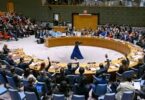It appears that despite understanding and analyzing the fault-lines in the economy created by past governments, the incumbent government has either inadvertently or deliberately stepped into the shows of its predecessors by taking adhoc measures to address the worsening macroeconomic imbalances. Federal Cabinet, in its meeting, decided to freeze electricity and gas tariffs for the next four months under the directives of the Prime Minister but will later find out “out of box” solution to increase utility prices in the next fiscal year. If such solutions in the past is any guide then honest consumers shall be hoodwinked by apparently abolishing additional taxes and surcharges by merging them in the original tariff, leaving them in the lurk and miseries.
The major causes and factors responsible for unaffordable tariffs of energy inputs may not be touched, while finding the so called “out of box” solution due to lack of political will. The shady power purchase agreements, massive default by influential running defaulters and provincial governments and up-gradation of transmission system will certainly be not taken into account for power sector reforms. The installed capacity of electricity generation is commensurate with the peak demand of 26.000 megawatt in summer but the rag-tag transmission system cannot pick the load more than 18,000 megawatt. It merits mention that Asian Development Bank has sanctioned a loan of $4.5 billion in 2016 for modernisation of power transmission and distribution system, including $400 million for the installation of smart meters. The loan cannot be disbursed as the relevant federal ministries have not completed the procedural formalities. Commitment charges at 0.5 percent are being paid on this loan.
A famous saying goes that something is better than nothing. Government has accepted the demand of export sector industries to lower the electricity tariff, making their exports competitive in the global market. Under the agreement zero-rated industries, including textiles will now get electricity at 7.5 cents per unit, inclusive of all taxes and surcharges. They will get gas at 6.5 cents per mmBtu until the closing of current fiscal year. It was also agreed to withdraw the already issued electricity bills of high tariff and surcharges included therein. The decision was made to facilitate low price exports, mainly textile products, to compete against India and Bangladesh in capturing their share in $20 billion in global market created by suspension of exports of these products from China.
Such like adhoc measures can bring temporary gains but cannot be instrumental for turning around the economy as first step and then putting it on the road of sustained economic growth, led by inexpensive, innovative and high quality exports of value added items. Speaking at Young Economists’ Conference at Karachi’s University Department of Economics, renowned economist Dr. Kaiser Bengali shattered the myth of achieving economic stability claimed by the economic mangers of the government by proving the government figures being not the factual ones. He cautioned that if implementation of the current IMF programme is not buttressed by implementing long term policies of facilitating growth in agriculture and manufacturing sectors then 24th such bail out shall be necessary. He criticised the policy of total focus on collecting taxes but not reducing extravagant non-productive expenditure but at the same time axing the development expenditure, which is a continuation of faulty fiscal policies of past governments. The economists emphasised the need for setting up new industries and promoting agriculture on modern lines to create durable sources of income, output and employment. In other words Dr. Kaiser Bengali is showing the government a road to achieving the goal of sustainable economic growth, benefiting all classes of the society by implanting long term policies of agriculture and industrial development. But ground reality is that despite strong directives from the Prime Minister completion of industrial policy has missed several deadlines and formulation of comprehensive policy of agriculture development is still out of priority list. Four years’ agriculture emergency programme of Rs.309 billion is no substitute for a long tern policy which had been implemented in the decade of 60s under five years development plans.






